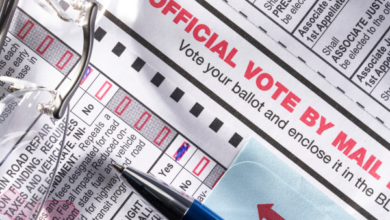The Emerging Role of Emotion Recognition Technology in Political Campaigns
The ability to gauge and respond to the emotions of voters.
In the ever-evolving landscape of political campaigning, technology continues to play a pivotal role in shaping strategies and connecting with voters. One of the most intriguing and controversial advancements is emotion recognition technology, which offers the ability to gauge and respond to the emotions of voters. In this article, we will delve into the emerging role of emotion recognition technology in political campaigns, exploring its potential benefits, ethical considerations, and implications for the future of democracy.
Understanding Emotion Recognition Technology
Emotion recognition technology is a branch of artificial intelligence (AI) that analyzes facial expressions, vocal tones, and other biometric data to identify and interpret human emotions. This technology can determine whether an individual is happy, sad, angry, surprised, or experiencing other emotional states.
The Role of Emotion Recognition Technology in Political Campaigns
Personalized Messaging: Political campaigns are increasingly leveraging emotion recognition technology to personalize their messaging. By analyzing voters’ emotional responses to campaign content, candidates can tailor their messages to resonate more effectively with different demographic groups.
Real-time Feedback: During campaign events or public appearances, emotion recognition technology provides real-time feedback on audience reactions. This allows candidates to adjust their rhetoric and delivery to connect with their audience on a deeper emotional level.
Issue Prioritization: Emotion recognition can help campaigns identify the emotional intensity surrounding specific policy issues. By understanding which topics elicit the strongest emotional responses, candidates can prioritize their messaging accordingly.
Focus Group Enhancement: Traditional focus groups can be enhanced with emotion recognition technology, providing a more nuanced understanding of how voters react to political messages and candidate performances.
Voter Engagement: Campaigns can use emotion recognition to develop more engaging content, such as emotionally resonant videos and speeches, to capture voters’ attention and encourage greater participation.
Ethical Considerations-While the potential benefits of emotion recognition technology in political campaigns are substantial, its use also raises important ethical considerations:
Privacy Concerns- Collecting and analyzing biometric data, even for political purposes, raises privacy concerns. Voters may be uncomfortable with campaigns tracking their emotional responses without explicit consent.
Manipulation Risks- There is a risk that campaigns could exploit emotional data to manipulate voters’ feelings and decisions, potentially undermining the integrity of the electoral process.
Accuracy and Bias- Emotion recognition technology is not infallible and can be susceptible to bias and inaccuracies, leading to incorrect assessments of voters’ emotions.
Transparency- Voters may be unaware that their emotional data is being collected and used by campaigns, raising questions about transparency and informed consent.
Conclusion
Emotion recognition technology is poised to become a significant player in political campaigning, offering new ways to connect with voters on a deep emotional level. However, its use also raises ethical concerns related to privacy, manipulation, and accuracy. Striking the right balance between harnessing the potential benefits of this technology and safeguarding democratic values is a challenge that political campaigns and policymakers must address as technology continues to shape the future of politics. In the end, it is crucial to ensure that technology enhances the democratic process rather than detracting from it.



